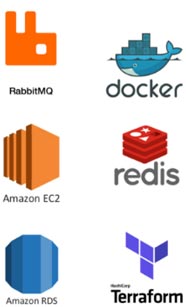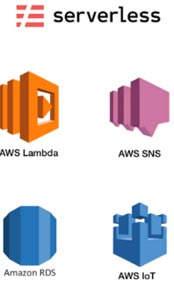
We Design, Develop, and Support Serverless Applications
Serverless computing services are available in two ways: Backend-as-a-Service (BaaS) and Function-as-a-Service (FaaS). Some providers offer database and storage services to customers or BaaS, while others offer functions without storing application data as the service. Some of the major FaaS vendors are Amazon – AWS Lambda, Microsoft – Azure Functions, Google – Google cloud functions, and IBM – IBM OpenWhisk.




















With big names such as Amazon Web Services, Microsoft Azure, and Google along with smaller players like Webtask.io, the FaaS landscape is already crowded. We help clients choose the best provider to support their use case.





As a certified development partner, we can easily work with AWS Lambda, Azure Functions, or Google Cloud Functions to process events with a serverless architecture while combining it with other services offered by the provider. Our development team is skilled in the supported languages, such as Node.js or Python.







Users taking advantage of serverless computing for their applications find that it has a lot of practical value. In a business setting, serverless computing essentially extends what organizations are able to accomplish with their applications and enables them to provide greater value to their customers.
For these and other reasons, serverless computing is now more popular than ever before. It helps companies achieve their computing needs without having to spend so much time on computing resource management.